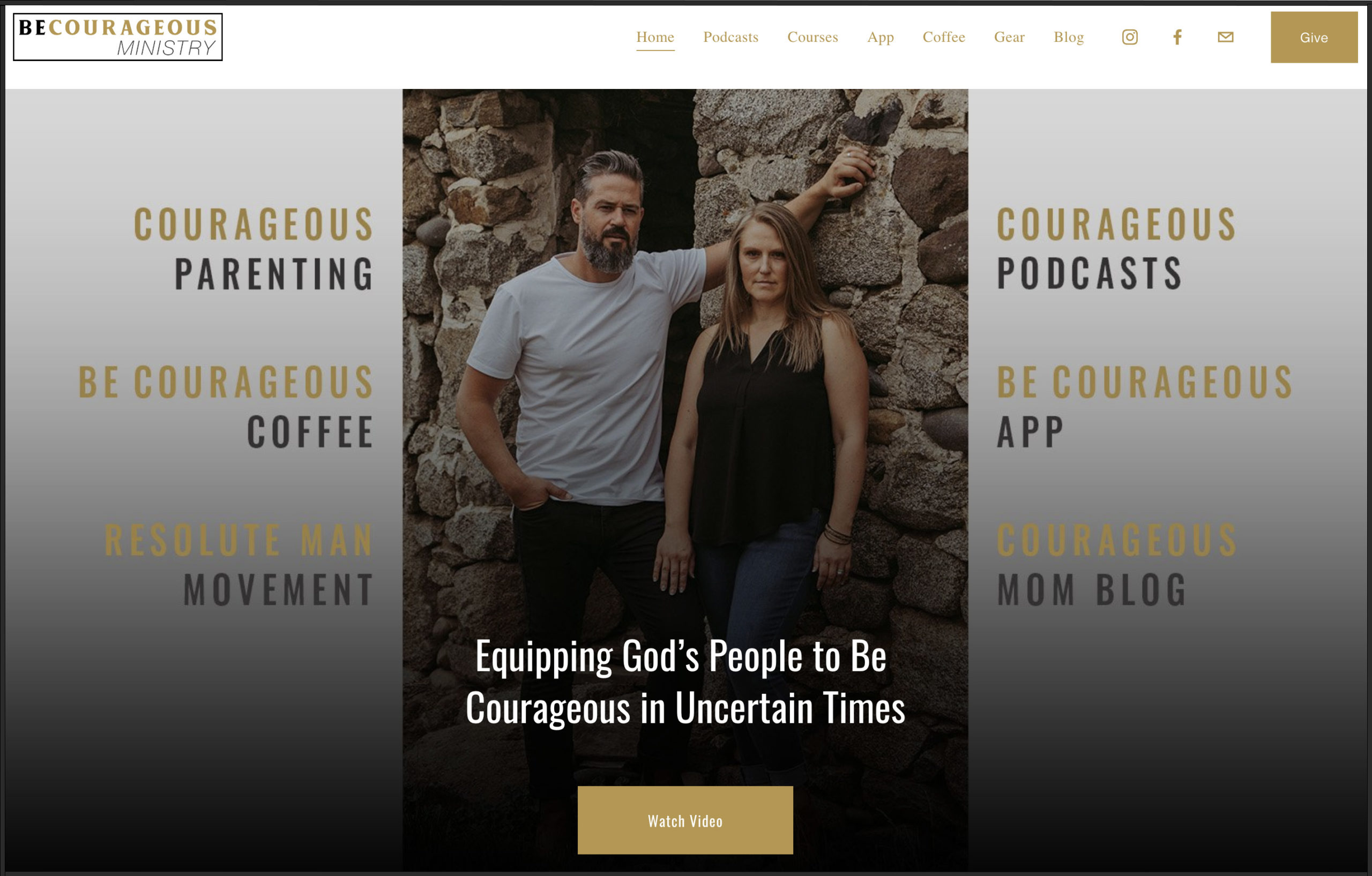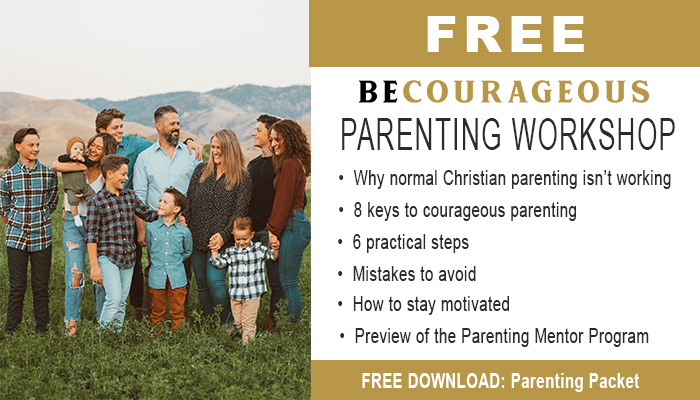We give you five questions in this episode to ask yourself and discuss in your marriage that we believe are the most important. Without honest reflection, it’s difficult to make the right decisions for change. You are so influential even if you don’t feel like you are. This is why it’s so important to become decisive in these areas when it comes to your family.
Main Points From This Episode:
- Reflect on the year. Make conscious decisions for change. Simplify together
- Provision isn’t on our list but it is important, but it’s also important to make sure its pursuit doesn’t interfere with the five areas mentioned in this episode
- Marriage alignment is vital as you influence change
- After listening to this episode go and listen to Episodes 01 & 02.
Scripture From This Episode:
Jeremiah 17:9 – “The heart is deceitful above all things, and desperately sick; who can understand it?”
Proverbs 3:5-8 – “Trust in the Lord with all your heart, and do not lean on your own understanding. In all your ways acknowledge him, and he will make straight your paths. Be not wise in your own eyes; fear the Lord, and turn away from evil. It will be healing to your flesh and refreshment to your bones.”
1 Corinthians 15:33 – “Do not be deceived: ‘Bad company ruins good morals.'”
Hebrews 10:24-25 – “And let us consider how to stir up one another to love and good works, not neglecting to meet together, as is the habit of some, but encouraging one another, and all the more as you see the Day drawing near.”
1 Corinthians 6:19-20 – “Or do you not know that your body is a temple of the Holy Spirit within you, whom you have from God? You are not your own, for you were bought with a price. So glorify God in your body.”
Proverbs 18:15 – “An intelligent heart acquires knowledge, and the ear of the wise seeks knowledge.”
All Ministry Resources: becourageousministry.org
Social Media For Christians – BE COURAGEOUS app
- Exclusive access to the courageous kid’s podcast. Play it for your kids to stir up good discussions.
- Monthly LIVE Q&A with the Tolpins; ask the anything.
- Powerful Biblically minded community.
- Topic-based discussion groups.
- You get your own profile and can connect with others.
- Resources on marriage, parenting, homeschooling, pregnancy/birth, and more.
We look forward to engaging with you on the inside!
FREE COURAGEOUS PARENTING WORKSHOP
Relevant Resource Links:
-
The Homeschooling Blueprint, the online program to boost your effectiveness & help your kids thrive.
-
Parenting Mentor Program, A 6-Week, self-paced online program giving you the Biblical Parenting Model
-
Postpartum Course, The First-Ever Christian Postpartum Course!
- FREE Courageous Parenting Workshop; Get the Parenting Packet Download!
If The Spirit Prompts You to Financially Support (We are a for-profit, for social good organization.)
- Financial Giving, is important to support our family and expand the impact of the ministry. We aim to impact 10 million families and their legacies. We are in full-time ministry as a family of 9 at home, so everything makes a difference.
Thank you for being part of this movement to equip 10 million families and their legacies with Biblical truth to raise confident Christian kids in an uncertain world.
Full Transcript:
Note: This is an automated transcript and misspells or grammar errors may be present.
Welcome to Courageous Parenting Podcast, a weekly show to equip parents with biblical truth on raising confident Christian kids in an uncertain world.
Hi, I’m Angie from Courageous Mom.
And I’m Isaac from Resolute Man.
We’ve been married for 21 years and have seen the fruit from raising our eight kids biblically. Based on the raw truth found in the Bible.
We can no longer let the culture win the hearts of children. Too many children from Christian families are walking away from their faith by age 18. And it doesn’t have to be this way. It shouldn’t be this way. Join us as we start an important conversation about effective parenting and the following. Hey, everyone, welcome to the podcast.
Hey, guys.
Today we’re talking about five questions parents must reflect on, or at least are really important to.
Yeah, you guys, I’m super excited about just diving into this topic again, especially right now. I feel like it’s very relevant. Isaac This time of year, you guys, do you realize that four years ago we started this podcast and the first two episodes were on setting vision for your family and cultivating culture. Family your family.
For the right family culture. Yeah.
Yes. And so today’s topic kind of goes along with those two podcasts. We really want to urge you to listen to today, but also to go back and listen to those. That’s episode one and episode two of season one, because truly, when it comes to courageous parenting, when it comes to biblically parenting, those two things, having vision for your family, the Bible says that those without vision will perish, right? And so we need to have vision and we need to understand that the culture that is set within our family, we have impact over that.
We have a huge influence and the words we use, the actions we take, that is the decisions we make about the agenda for the year, what things we’re doing and so forth all make a accumulated effect in impact on how your children are being raised, the influences you allow to have on them and all these things. So we’re going to talk about these five things to reflect on rather quickly because we want to simplify this and really help you have a marriage conversation that we just think is vital this time of year because it’s coming to the end of the year. So you can reflect on a period of time that you can look at all those things.
You know, And I just want to encourage you guys, this is something that Isaac and I have done for many, many years. I would say probably at least 20 years since we’ve been married 23 and one half years. I think that there’s probably been 20 years where we’ve been specifically focused on this around this time of year, where we’ve evaluated all of these different areas of our kids lives as well as of our own. And you guys, it’s one of the things that I would say keeps our marriage renewed, if you will, you know what I mean? And on the same page and feeling like we’re a team and working together because this is a time where you can share your heart and he can share his heart and you can work together and become aligned.
And you’ll notice that this isn’t a list of everything you have to listen to episode one for that. And two, but this is the five really what we think are most important. You’ll notice provision money isn’t in there. That is really important. But what I would say to that as we go into this is that as that is very important, oftentimes that distracts away from the five is the hustle and the trying to figure out and to or just maybe goals financially and so forth. So while it’s good to have goals for financial, we do too. It’s important that that motivation, that drive that direction doesn’t hinder the five.
And so it doesn’t like drive five. The decisions made in the other five categories as well. I would say, if anything, these five categories should actually drive that more than anything. And so we’re super excited to jump into this. But before we dive in, we just wanted to say thank you for joining us and supporting the 10 Million Legacies movement. This is exciting to be doing this with you guys. I hope that when you listen, you hear from Isaac and I a genuine enthusiasm for continuing on in this ministry and walking side by side linked arms with you, because that is truly like what our hearts. We are excited. We’re thankful that we get to do this every week with you and we hope you’re encouraged and we love hearing what encouragements you’ve gained from the podcast. So thank you.
If you want to know how to pray for us, we get real in the last episode. So let’s dive into this. I think you have well, I think the first thing is you want to reflect on these five things so that you can make some new decisions based on those five things. And then once you have decisions, you need to simplify it so you actually implement. If things aren’t really, really simple, then people don’t implement anything. So it’s really important that’s memorable that you can remember what your decisions are by simplifying it into. And sometimes it could be one or two statements or a couple of words that remind you of the of the five decisions you made or whatever they are. So listen to episode two for setting the culture on that. All right. So let’s dive into point one.
Point one is a really, really important question. What is the spiritual condition of your family? And when you’re evaluating that, you want to really evaluate and reflect and be introspective on each individual within your family and don’t leave yourself out. Yeah, this is a key point, right? Don’t leave yourself out. I think that that’s like a word for moms, especially because I feel like a lot of times we’re so concerned about how everybody else is doing and trying to keep this. I like to call it the spiritual thermometer. On where our kids are at. And sometimes we can get really focused on that and we forget to evaluate where we’re at and what has God been teaching us? Am I growing? Am? Have I met my own personal desire to connect with God this year on a regular basis, or are there some is there a need for some kind of change, a decision to be made? Maybe you need to share something with your spouse so you can have accountability, so that you can be abiding in God more. Don’t leave yourself.
Out. Hey dads, you are crucial and your spiritual condition is vital. You will not take actions that help the spiritual condition your family, or you will take actions based on how you’re doing in the Lord and your walk and how much you’re reading the Bible. I’m praying. And what’s your prayer life like? How is your disciplines and all of these things? It’s so important, folks, that we’re leading well, you have so much influence. And if you have a wife like me, guys, that’s really diligent, godly.
Thinking.
And knowledgeable, I would say she still knows more scripture than I do. And I think it’s I think it’s actually the way our brains work. We’re wired differently. So her memory is unbelievable. But anyways, but that’s not just because our wives are strong and growing doesn’t mean we sit back. Not at all. The children need both of us. And actually the guys, the dads are the pastors of the family. They’re the spiritual leaders. Moms are spiritual leaders, too. There’s a team here, but it’s really important that we’re engaging, even if it appears that, wow, our wife is so good at that she’s got this dialogue. I can just go provide and have fun with the kids. Wrong.
I love it. He just drops the mic right there. Wrong.
So we got a scripture on this.
So Jeremiah 17 nine, says the heart is deceitful above all things and desperately sick. Who can understand it? And I can I read verse ten because it’s so important. It says, Read the Lord, search the heart. I the Lord search the heart and test the mind to give every man according to his ways, according to the fruit of his deeds. This is so crucial, I think, that a lot of times people will oftentimes quote verse nine, which is the heart is deceitful above all things in desperately sick, who can understand it? And they don’t even they miss out on something that’s super rich, because we need to remember that while that is true, the Lord does search our hearts and we should be walking out our faith with fear and trembling at the acknowledgment of that. And he tests the mind. That’s an important thing. This the Bible is literally saying I, the Lord, search the heart and test the mind. He’s going to test your mind. He’s going to test your faithfulness. He’s going to test your faithfulness in that if if he’s testing your mind, do you know what God’s word says and are you willing to obey it? And this is how you know, he’s doing that says he gives every man according to his ways, according to the fruit of his deeds. So this is about obedience. It’s about walking in truth. It’s about doing what? Making the decisions that God has called you to make as a woman of God, as a man of God, as a husband, as a wife, as a mom and a dad. So when we’re evaluating these different categories, you’ve got to recognize that God’s going to test your mind and he’s testing you and he’s looking at your fruit as the test.
Absolutely. Proverbs three five through eight says, Trust in the Lord with all your heart and do not lean on your own understanding and all your ways. Acknowledge him and he will make straight. Your paths be not wise in your own eyes. Fear the Lord and turn away from evil. It will be healing to your flesh and refreshment to your bones. So we need to trust the Lord with all of our heart. While we can’t trust just our hearts apart from the Spirit, because it can be deceitful as we just learned, we need to trust the Lord with all our hearts. So the spiritual condition of your family, who and your family is trusting the Lord with all of their heart, not just their words, not just a belief which is important, but with their actual heart and out of the heart flows, actions, flows, a way of.
Being about.
Flows, the rhythms of life, what actually shows.
Up, flows, the decisions that you’re willing to make, even if they’re hard. Right. Which is what we’re going to be talking about here in a few minutes when we go to a couple of different categories. Different people would probably say that different categories that we’re talking about here are going to be harder than others. Right? So, for example, the parent that maybe is completely out of connection, out of relationship with their kids because maybe they’ve become a workaholic. Maybe they’re so focused on themselves and their own agenda that when they come to a meeting like this, they have nothing to offer up as far as intel and discernment regarding their kids spiritual condition. That is sad to me. Right. That is sad. That is a reflection of like, Whoa, hold up the horse. What have you been doing with your life? We need to take a moment and go. This is your responsibility. No one else can do this but you. You guys are the parents.
Sometimes I think there’s questions we want to ask our kids, but sometimes people are too afraid to ask it because it’s going to take a lot of time. So it’s like, Oh, how’s your walk with the Lord going? But maybe you feel like you only have 10 minutes and this can take too long. You don’t ask it. Or maybe you subconsciously don’t want to know the answer because it’s not going to be as good as you want. You know, what are the reasons? Maybe we’re not asking those deeper questions with our children and really knowing how they’re doing or if they have any questions and.
So forth, or maybe if they’re not sharing with you, it’s because there’s actually a deep rooted issue in your relationship with them, which is going to take time to repair and heal and reconcile. And you’re you recognize that. You acknowledge it in your head, but you think there’s just no possible way you can do that right now because you don’t have enough time. Right. And so whatever it is, like, if you can’t bring intel. Reflective insight to the conversation with your spouse regarding the different individuals in your family, including your spouse. Can I just say that including your spouse? Like if you don’t know where the heart of your spouse is, if you don’t know what’s going on in their mind, that means you guys haven’t been communicating. You haven’t been connecting, you haven’t been communing, you haven’t been being one, which is what God calls you to. And that might be a convicting thing to hear right now. But I just really feel like this is super, super important because as you’re going through asking a question, what is the spiritual condition of your family like? You literally cannot be honestly sober minded and reflective if you do not have relationships, which is point two.
Point two is what is the state of relationships in our family and outside of our family. So it’s super important to think about that in the first relationship is obviously your relationship with God, your relationship with God and your children’s relationship with God. We just talked about that. But to move on, the next most important relationship is your marriage and what is the state of your marriage. And if that’s a sore spot because you instantly start feeling like it’s not where I’d like it to be, I have a vision for it that’s much better than how it currently is. You know, that’s tough, but it doesn’t mean we don’t think about it. It doesn’t mean we don’t set some new intentions and have some new discussions about desire for where the marriage could be. And sometimes only God can fix some of the problems out there. We understand that. But there you go. It’s like a fervent hope and prayer that’s renewed as you reflect and you think about that. But some marriages are going fine, but they’re kind of just going. It’s just sustaining. And there needs to be a new vision.
Surviving, and that’s a good.
Word, a new energy, a new desire. Maybe it starts with a little more desire in both parts to make it better. Maybe the other part isn’t having that desire, but if you do well, you’re getting God involved in the marriage in a deeper way through your prayers. And so that is really important to reflect on, regardless of where your marriage is at.
Can I just say something on the topic of marriage for a second? I think that there’s a need for both husbands and wives to recognize that what they model in their marriage before their children makes massive impact. It’s the little things that you think they don’t see, that they see that they catch. And the truth is, is that a lot of people are not intentionally preparing their children for marriage. And it is probably one of the most vital relationships to be focused on preparing your child for actually. And, you know, as I have older children, this is something that I’m like, wow, like, you know, I even see it with. It’s interesting when you have older kids and you have younger kids. I see it with some of our younger kids where if we’re watching Little House on the Prairie as a family and someone will be like, Oh, it’s so funny when Laura falls in love with Almanzo, you know, And I don’t remember like our older kids at that age being aware of that and like the whole marriage relationship in such a way. And I think that part of it is that we’ve got one that’s already married.
They’ve seen it.
And they’ve seen the.
Progression.
They’ve seen the progression of the courtship time of the dating time of the engagement time and marriage. And now they have their first baby. And so they’ve they’ve been able to witness it and it’s fresh and it’s right there in front of their face. And and I am so thankful for their example being godly because what if our kids were not walking in a godly marriage and our other kids were seeing that? How how, how impactful would that be? Right. And so the reason why I bring this up is because one of your children is going to get married first and be an example to the other kids. And so you guys need to have like if there was ever a motive, an extra motivation other than just obeying Scripture and also loving your spouse and wanting to have a thriving marriage, it would be that for parents, right? You know, this is a parenting podcast, so I have to bring that up. Like recognize that we need to be teaching our children how marriage should be by modeling it. And so do you pursue your spouse?
Amen. And then the next relationship is sibling relationships. How are there relationships amongst each other? And think through the details of that. Now, maybe there’s two siblings that really get along, but there’s another one that really is kind of might be feeling like an outsider and is not as connected or is really rambunctious. So it’s hard for the other siblings to play with and get along. Or maybe the older ones are not having an understanding that they too were once they’re in a lack of being able to be in a good conversation or be patient just because they’re younger and they don’t bring them up. Instead they shove them out of the picture. And so in terms of play in life and things like that, So where are those and what’s your heart’s desire for your the sibling relationships? Because until you pinpoint it and are decisive about it, probably nothing’s going to change.
I would say too, when it comes to just talking about kids in a family, one of the things that is important to evaluate when you’re thinking about your kids and you’re thinking about their relationships with one another, you also should evaluate your relationship with each of your children as well. And then your spouse’s spouse should do the same thing and evaluate their relationship. And this is a good time to go, Hey, you know what? I just feel kind of disconnected from this child and is there any way we can make it a priority that I spend a little bit more alone time with that kid or whatever? There have been seasons like that where Isaac and I have had those conversations where we go, you know, what’s really needed is discipleship from the mom, like the mom to the daughter or the son to the dad, you know, and make it takes a team effort to be able to make that happen, doesn’t it? That’s why it needs to be a conversation, because if you have other children, then the other parent needs to be behind that and proactively willing to be parenting. The other one’s alone for a short while while the other person’s pursuing that kid.
I used to be in a business where I managed a lot of different people, leaders running different offices all over two states. And it was really it could be overwhelming. But instead I just imagine a thermometer above their heads of their, you know, how they’re doing, like how full is their thermometer? And I always think about that. How full is the thermometer in terms of relationship with me, their leader? How full is the thermometer towards commitment to their business and these things? And you can translate that directly to your children. How how full is that thermometer? Is it is it really hot read in your relationship with them or is it in the orange level or worse? And where is that with the siblings, too? And so I’m I’m a very visual person, so that really helps me to kind of go, yeah, that that thermometer is a little low. What are we going to do about that?
So we’ve talked about spiritual thermometer and now a relational thermometer. I love this because it is a visual thing I think that needs to be evaluated. And just like the temperature can go up and down, minute to minute, it’s pretty true that that thermometer gauge could definitely go up and down as well. And that’s normal because we’re human and we’re dealing with humans, right? So we have to offer grace with one another. But this is a thing offering grace means that you have to have disciple your children and understanding what grace is. Otherwise that thermometer is going to be off and they’re going to have. Hard time giving what they haven’t received or they don’t understand. Right.
And then there’s relationships with everybody else, peer relationships, relationship to church, community, educational places, you know, friendships, all of those things are really important to evaluate. I want to take a moment and give you something for free if you haven’t got it already. Is the date night one sheet? It is a beautiful document you can download that will have some key questions on it for your date night to just get in alignment about what’s most important for your family. No matter what time of year, it’s always important to recalibrate. You can get that by going to courageous parenting dot com and subscribing to our mailing list. Also, you can get all of our show notes and everything at courageous parenting dot com. And I also just want to share real quick about the parenting mentor program. So many families are being transformed by going through this. It’s the six week self paced program with live engagement from us in even direct interaction. So if you want to join us, here’s a little bit more about it. You can find out more at courageous parenting dot com.
Steve and I realized that we were getting too comfortable with the world’s vision of how to raise our children. What Angie and Isaac have done in creating this is literally phenomenal. This program provided awesome scripture based teachings and just some really great practical applications. This class has just really rocked my world. It has given me a vision for not just the different things that we might focus on as parents who are trying to raise our kids biblically, like how our kids are behaving or what we’re doing with discipline, but also the things of the heart. We now have a game plan to how we want to raise our children. We have so.
Many answers to the questions that have been in.
Our mind. It’s not just these hypothetical situations or it’s not just this. Here’s what I think you should do. It’s let me show you where in scripture this is. Do your legacy a favor and your self a favor and just do it. One of the best things that we’ve done this year, one of the best investments we’ve made this year, and I could not recommend it more. We’re no longer fearing dark days ahead, but we’re so excited to raise lights to be leaders for the next generation.
We have a scripture here in first Corinthians chapter 15, verse 33 says, Do not be deceived. Bad company ruins good morals. And so we have to when when we’re when we’re parents and we have kids that are younger, I think that it is safe to say that it is our jurisdiction, our responsibility to choose wisely who we’re spending time with and to recognize that we actually are the ones that choose our children’s friends. Can I just say that very bluntly? As parents, we should proactively be choosing our children’s friends when they’re younger, and then as they get older, we need to start equipping them with truth like this verse and first Corinthians chapter 15, verse 33, warning them and teaching them how to discern, learn what is good morals, what is bad morals, Right, Bad company. What does that mean? Yes, you have to teach your children to make some judgments.
You know, it’s interesting because a lot of people, especially young people, believe, including maybe ourselves, that you’re not enforceable, that that scripture, while it’s in the Bible. So you’d say, I believe that then you take it to yourself and you go, No, I can stand strong. The movie won’t influence me, the peer relationships won’t influence me. And the fact is scientifically proven that we are all really influenced. Well, I’ll give you a quick There’s this organization that’s been testing the influence of Google on elections and these kinds of things, and it’s the only company that’s done this. And they’ve had real people analyzing searches on over 10,000 different people’s Google searches. And they volunteered for this. And what they found is Google can sway day by 40% people’s choices on who they vote for just by teeing up certain information and not showing other information when people search for things. So are we influenced? Well, yes. You may have heard in a different episode of me say, don’t think about a pink elephant and you can’t not imagine a pink elephant. So I just influenced you. That’s from a business book I read. But, you know, it’s it’s we are so inflexible and we need to teach our kids that part of that equipping made me think about it. Equip your kids to understand that they are invincible. We need to keep our minds captive and have a renewing of our mind with Scripture and be careful who we spend time with.
Amen. I love it, you know, and I think that that’s a great turning point into our third category here to evaluate, which is community. I mean, we did talk about the rest a little bit, and this is just a segue into this next topic, which is a bigger topic, right? Because the truth is, is if we want our. Children to be walking in the way. And we want them to have good morals, if you will, and we want them to be among good company. And we understand that their peers are going to influence them, their teachers are going to influence them, they’re our friends are going to influence them, their family, grandparents, aunts and uncles, you there’s so many people that influence us but also influence our children. We must evaluate our community and recognize that there is a temptation to just be in the same place because it’s comfortable or just be among the same people. Because we’ve always been among these people and we have history together. Like even think about growing up and going to school, right? Like and seeing people who still hang out with their friends from high school, for example. And it’s like, why? Why is that? Is it that they have grown together or is it that they haven’t grown and they’ve just stayed in the same community, even if it was potentially toxic And they now are like they’ve been influenced. They all influence.
Each other, right? Praise the Lord. If you have friends from high school and we’ve all grown and you iron sharpens iron, that would be awesome.
And that can be a case. But this is a point. Evaluate it like that’s what we’re saying. Like evaluate the community. Evaluate Does God actually want you to be in the community that you’re in? Is it God glorifying is the question, because our lives aren’t about us. It’s not about being comfortable. It’s not about being around people that we’ve always been around and not being purposeful. We should try to be witnesses, lights, iron in each other’s lives regardless of where we are. But if you can’t do that in your community, or if you are getting dragged down or pulled away from biblical truth, being tempted to walk in sin versus walk in righteousness, then you must. These are all questions that you’ve got to be asking regarding your community, because the truth is, is if we’re wanting that for our kids, if we want good for our kids, but we’re not living it, then they’re never going to.
So what are the pluses and what are the negatives of your communities that you’re in? And if you’re not honest about the negatives because that relational ties so strong, then you might be jeopardizing the condition of your family. So it’s really important to be introspective and honest, and sometimes one spouse is more honest than the other because one has a stronger relational tie and the other one needs to wake the other one up. And so it’s really important that you analyze that and that we’re running the race, that you’re never going to run the race with perfect people because they don’t exist. You aren’t either, right? But it is good to be sober minded about this and go, you know, reflect on this and go, hey, you know, what is is there a change that we want for community? Is there something we desire that we’re not experiencing right now and ask God for it?
And I think that you also need to recognize, like ask yourself questions. These are some questions I’ve asked is, are these people allowing us to actually challenge them to grow and to spur them onto good works, or are they opposing it? Are they not wanting to learn and grow and be challenged, or.
Are they spurring us.
On?
Right, because they’re stronger than us and encouraging us to grow. And both of those.
Are important and it should go both ways. But when someone doesn’t want you to challenge them to grow and they don’t know how to challenge you to grow, then eventually that relationship’s likely going to die if you’re trying to walk in biblical community, right? Here’s a verse in Hebrews ten chapter, chapter ten, verse 24, it says, And let us consider how to stir one another up to love and good works, not neglecting to meet together, as is the habit of some, but encouraging one another. And all the more as you see the day drawing near. Obviously we see the day drawing near. People talk about it all the time and the truth is, is that God has created relationships for a purpose. This is part of the purpose how to stir one another up to love and good works, not neglecting to meet together. I even think about this verse also reminds me of people who are maybe going to church and doing the natural, normal rhythms of Christianity, which we talked about in the last podcast, right? That things need to change, parenting needs to change, or you’re going to reap results that you don’t actually desire and pray for. And so living biblically is sometimes hard. Sometimes you have to make hard decisions, and sometimes that is regarding the community or the people that you currently have in your midst around your children influencing them. Right? And this topic of potentially going to church and walking out and not actually knowing each other, it makes it easy for people to hide.
There is no stirring up of good works. And when like those like everyone has their things. Everybody has their mess, if you will. Everybody has their past sins, their guilt. Everybody has like things they regret that they wish they wouldn’t have done or wish they would have done. Like that’s just the reality of humanity, because we’re human, right? But this is a thing when you’re walking in biblical community with people and this is what has to be evaluated. You’re sharing those things with other people and they’re sharing those things with you and you’re holding each other accountable and you’re praying for each other and encouraging each other to walk out of bondage and live as free people because that is what Jesus died for. Amen. And so, like, when we’re evaluating community, we need to really think about our church relationships, our community, our biblical friendships and go, are they actually like? And if they aren’t, can I just encourage you to be brave and and share the desire that you have to have more intentional relationships? Sorry with that person, go out on a limb, be courageous, and be willing to say, Hey, you know what? I’m really desiring to be closer and have a more biblical friendship and I love it. If we could pray together, start there. That’s a simple, simple idea of how to start moving forward.
Yeah, maybe it’s nourishing what you already have in a more spiritual direction. And the fourth thing is health. This is important. It’s not the most important, but it is important because God wants us to run the race well. And if we don’t have good health, that’s a challenge. The good news is, as believers, we’re going to heaven if something happens. But there are threats out there and we’re not to operate in fear, but we’re to be wise. And they’re already testing other viruses. There’s there’s the World Economic Forum is talking about they’re already running drills for a virus that specifically attacks youth in a more deadly way. And it seems like whatever the drills they do tends to happen in the future. So I think I’m not trying to create any fear here, but we do need.
To be aware, be.
Aware of things. So first Corinthians six, 19 through 20 says, let’s see your first Corinthians six. Oh, I got to get there. I’m not quite there yet. Sorry about that, but it’s the one about the Holy Temple here. So where do you not know that your body is a temple of the Holy Spirit within you whom you have from God you are not your own, for you were bought with a price, so glorify God in your body. So we do need to take care of the Holy Temple so that we can be good stewards, so we can be around to shepherd our kids and then our grandchildren and be an influence. Something I’ve been convicted on. I’m like, I need to get with it again. I’ve had periods where I am with it with health, and then I get busy and there’s so many things and there’s just excuses. We have time for what’s a priority. We need to make health a priority, not an idol, but it needs to be a priority.
You just said a ping word to me and I have had on my mind that I wanted to share regarding this topic because it’s easy for people to go, Oh, I feel guilty on the topic of health. I don’t work out enough or I don’t do this or I don’t do that, or I wanted to get off of gluten or I want it. You know, everybody has their thing that they thought about in evaluating health, but very not very often do I feel like people are actually asking the question, Have I made an idol out of my health? And this is just as sinful. If not, I don’t know if there’s anything such as more because God just views all things similarly in this regard. But he’s a jealous God, you guys, and he does not want us to make idols out of anything, let alone our own bodies, for crying out loud. I mean, when we make an idol out of our health and working out, for example, or even just nutritional eating can become an idol. We’ve seen it happen in people’s lives where they’ve allowed it to become something that’s caused division within the body of Christ. And we’ve seen how terrible, how divisive, how destructive that can be in the church, right. In relationships, in families. It’s devastating. But this is something that needs to be evaluated. How do other people perceive me regarding this topic of health? Is am I a stumbling block? Is my, my, my goals or what I’m doing? Is it truly Christ centered about treating my body as a temple, or is there maybe some pride that goes into it? Do I judge other people as like, why aren’t they doing it more than me or whatever? And and I think this is an important evaluation that needs to be had because we got to surrender those things and confess and repent to other believers and to God if that’s something we have sinned.
And here’s an encouragement is I think that this this can be both ways. But wives, I just would encourage I’ve seen Angie understand natural health and what to take. And the natural paths to things. We believe in medicine, of course, but we always try and take a natural path is as far as we can. And there’s got to be natural maintenance happening of the right vitamins, the right mix of things, and that can be a big subject. And so instead of being overwhelmed, what I’ve witnessed is we have come across really good natural experts that we use, like doctors that take a natural path to things. And then she is constantly learning and asking questions and that she’s reading books, following up, and then she’s she’s layering on knowledge upon knowledge over the years to where now she really has this amazing expertise in natural medicine. It is really incredible and has is probably saved somebody’s life in our family because there’s been close calls and through natural paths, really amazing things. Obviously God’s in control here, but we give him the credit. But but anyways, I do appreciate that about you. And I think that it is really, really important as we’ve seen the abuses in the medical world to be discerning and to not believe what’s being projected at us. But we need to be critical thinkers based on a growing set of knowledge about what is healthy.
Yeah, and I would say on this topic too, there’s a lot of teachers out there. There’s a lot of people who, for them, maybe their faith is weaker, maybe they are less spiritually mature. Maybe they have not been a Christian for very long. Maybe they have a background in the occult. And so for them, it’s a temptation for them to want to throw the baby out with the bathwater and say that all things are bad, including like essential oils. I would just use that as an example. Right? And my personal belief is that God gave us these things for our good, for us to steward well, they’re neutral things that are neither good nor bad, and it’s up to humankind, it’s up to human, the humanity to use them God’s way or to use them not God’s way. And we need to take that jurisdiction on responsibly. Again, not making an idol out of those things, which is what we’ve talked about. Right. And I but I’ve seen Christians go too far and make an idol out of those things so that when someone gets sick, the very first thing they run to is that oil or the very first thing they run to is that supplement. And that’s also not OC Right? And it’s not that we don’t know what to do, but what we do is we have a correct order in our mind of praying and asking God to be the healer and to give us wisdom and discernment in what tools he’s given us that we should be using in this very moment. And then we start thinking, we think critically and we go look at the symptoms and we try to choose what’s right and we continue praying. God, I pray this works, that your will be done. That, in my mind is a biblical, neutral, balanced perspective. There are so many aspects we could talk about regarding health, but we really want to move on to the next one, which is education.
Education is so important because you know who’s teaching them, what are they teaching? All these things. And, you know, I think it’s important to think beyond we did a whole episode on this. I think it was about home education. But and that’s not the only point we’re making here. But regardless of how you educate your kids, what’s the most important to you beyond the basics? That’s the question. So what is most important to you beyond the basics? A question to ask, you know, on point for, I don’t know, we turn it into a question, what is the the health of your family and where do you want it to be? And, you know, how healthy is the community and how where do you want it to go and how healthy are the relationships in your family and what is the spiritual condition of your family? So there’s the question. So on five here, what is the education? What’s the most important beyond the basics? And we have a list and you can have your own list. Doesn’t need to be our list. But here’s some things that are important to us.
Yeah, before you go through the list, when he said beyond the basics, I mean, obviously there’s the reading, writing, arithmetic, right? Like you want to equip your kids with the basic tools. And so those are not included in our list, but they like that we’re going to be sharing with you. But those are like obvious things. So there’s like obvious things, right? Like discipling your children, That’s an obvious thing. Right? And so but, but when it comes to our list, hopefully this is something that challenges you to think beyond what normal education is actually, because I really do feel like this is more like life equipping.
Yeah. So what are experiences you can help create that teach certain things? What are how about public speaking? I think that is incredibly important. You know, another one that’s really important is the sales, the ability to sell. And it is so vital. It doesn’t mean they need to have a sales job to learn it. But I believe our children are learning sales without having a sales job. And that’s amazing. And having sales jobs great, too. That’s a path I took when I was younger. So I think that that is. Vital skill because it leads to resourcefulness. The skills within that is a is a resilience and a resourcefulness that is really important.
And actually kind of equips you for a little bit more of independence in the sense of not being dependent on any man. Right? When you’re able to even think out of the box like bartering or just any of those things comes from that experience. Right. And but I also think about just how sales also can teach people communication skills apart from public speaking. Right? You mentioned public speaking, but really it’s speech of any kind of being able to communicate what you believe. For example, why are we here? It’s to know God and make him known. How do you make him known? Well, hopefully our lives speak louder than our words, but we should also, if we have the ability to speak, be speaking praises of our Lord, be leading other people to Him, discipling people so that they can then be baptized and enter into the kingdom of Heaven. This is exciting.
I like thinking about skills that are hard for artificial intelligence to ever do, right? So this is really important. So you think about jobs in the future. Will Artificial intelligence is rapidly there’s something that just came out the rapidly excelling but what are some things that are always distinctly human and I want my children to to be really good at those distinctive human things, which is the ability to influence with words in unique situations and different situations. And speaking in sales, the ability to sell is important ability to sell. I mean, every time one of our children does a kid’s podcast, they are selling their points, they’re making an outline representing them, making them, and then backing it up and supporting it. And I think that’s really important. So resourcefulness is another one. We kind of talked about that. What skills can they learn that will potentially in the future they could earn money from? So they may go in some path or career, but what skills can they back, can they fall back on to provide for their families?
Right. You know, I even thinking of that, I think of us growing food and canning and preserving and harvesting food and just all of the different things that you learn in that process and doing that with your children of any age. Actually, you can do it with your kids of any age, and you should be at some level because it also helps them to have an amazement for our creator and an understanding that God is the one who brings the increase. And it’s also an opportunity for them to have to deal with life and death in a sense, because there are seasons where things are growing, where things are thriving, where they’re producing fruit, and then a season where things are dying back and going dormant. And that provides you an opportunity to to actually teach them things, right? I even think of livestock taking care of animals of any kind. And then when they die, like having to deal with what is death and like when you’re actually living out the life that God has designed for us all to live out where we are actually working hard, we’re not striving to not have to work. That’s not a biblical concept. What is biblical is, Lord, how do I steward what you’ve given me? How do I do it to glorify you? How do I equip my children so that they are prepared for as best as possible, for whatever potential circumstances will be there for them in the future?
How about writing? I know that’s a basic, but I just wanted to bring that in. Like writing to influence and to teach and to communicate your thoughts and ideas. I think that’s different than just basic writing. It’s like, you know, someone once said, You can change the world with the stroke of a pen. And so just remember that writing with that kind of mindset and the belief. I remember telling Ethan that not too long ago and he got really inspired to become a better writer. And I just think writing is such an important skill. It’s it’s the written form. And sometimes that’s more powerful actually than actual speaking because it’s permanent. There’s a permanence to writing, I suppose, through video, there’s a permanence to speaking to, but there’s unique permanence to writing that’s really special. We’re going to do a lot more writing in this next year. That’s one of our things ourselves now. History, accurate history. How about the parts of history that are being attacked by the global elites and the education system and all these things? How about presenting an accurate view of that history and making sure of that so that they are, even though they’re going to be a minority in the future, they have this anchor points of accurate history, even if there’s hard to find those books in the future and those kinds of things.
And I even think about when you’re teaching history along with that, you’re teaching spiritual discernment and how to guard their minds from wayward philosophers and wayward philosophies as well, because there are false teachers that are out among people, even wolves in sheep’s clothing. And just recognizing like that, we all have a responsibility as teachers. And I said, we all like obviously Isaac and I are doing this podcast and we understand and we walk with fear and trouble. Regarding James 31, many of you should want to be teachers, my brother, unless you receive a stricter judgment. And that is true. But when you become a parent, you become a teacher and there will be an account for what you’ve taught your kids, what you have not taught your kids, and what you’ve taught them by way of omission, which is something we’ve talked about in the past. Isaacs brought that up in previous podcasts. But regarding history, like are you teaching them how to discern what is true, what is right, and teaching them that there are false things. You can’t just believe everything you read today, right? And understanding that there is a need for prayer, for spiritual discernment over every single one of our children. We need to be watchmen on the wall, praying over our kids biblical fruits, biblical gifts that God wants to give them because it is. We’re not always going to be there, you know? And so we have to do our job and equipping them.
Now, contemporary world problems is another one that I think is important, and don’t be threatened by that if you’re not super knowledgeable of what’s going on in the world and the different events and the history about events and why that matters for today and these kinds of things, I would say start. It really is an appearance jurisdiction today to be teaching contemporary world problems, not delegating that to some other teacher because they’re likely to put a bad they have a different paradigm, not maybe a biblical paradigm that they’re teaching those things through. And just it is vital to understand different history on these things, but to be sharing it with our children as age appropriate. Some of you might have really little children, but you should be learning, I mean, at least one of you learning on these things so that you’re caught up. I am thankful that for the last, I would say ten years, I’ve been paying attention and really paying attention. And so not only when I see the news, not only do I see what the news is saying, and I’m very careful where I get the sources right, but then I can extrapolate whether that’s true or not based on all that I have researched and learned about in the past. And so it’s very hard for me to be fooled. I can be fooled for sure. Everybody can. But it’s harder because I’ve been paying attention to this stuff for the last decade and really closely and being very careful for the last ten years of where I got my news sources and learn from and always been aware that, you know, there’s propaganda and these kinds of things. What’s happening with the Twitter reveal right now and all the files and so forth where the federal government conspired with big tech to push propaganda and influence elections and different things on a liberal direction. It is so important that we are teaching our children how to critically think. And it’s hard to critically think if there’s a lack of knowledge about contemporary world problems.
We have a verse for you that I like to encourage you to share with your children. It’s Proverbs 1815. It says, An intelligent heart acquires knowledge and the ear of the wise seeks knowledge. Isn’t that interesting that God’s Word is saying intelligent heart. Our hearts have an ability to be intelligent, and it’s the intelligent heart that acquires knowledge. It’s not saying the intelligent mind acquires knowledge. It’s very interesting to me. And then to pay attention, the ear of the wise seeks knowledge. So if you want your children to be wise, right? So you’re going to train them up to go, Hey, if you want wisdom, like then you’re going to be open eared to seek out and learn knowledge from a person who has a heart that is intelligent and has acquired knowledge. So it’s one person seeking after another there and it gives a description of both. It’s really beautiful and intelligent. Heart acquires knowledge and the ear of the wise seeks knowledge. Why is this? Because if we’re going to make wise decisions, we need to be introspective, knowledgeable, understanding and discerning.
So to wrap up, reflect on these five questions, make some decisions together, and simplify what you’re going to do moving forward. So what is the spiritual condition of your family? What was the state of relationships in your family? What is what is your community like and how could it be better? What is the health of your family and how do we need to be more prepared? And education. You know what’s most important beyond the basics and who’s influencing our children? I think it’s important to think about these things. You can ask that question in your own way. Write them down and bring them to a marriage conversation. And you know, it might be lively. You might want to pray first.
Yes. And end in prayer as well. Because as you’re seeking God’s will for your family, sometimes we can make plans as humans, but we need to let the Lord direct our steps. And so sometimes he asks us to do something that’s hard, right? And. We just would encourage you guys and we’re praying for you guys to be courageous and to do the biblical thing next, right? So don’t forget to jump back into the app and look for the first and second podcast that we did on vision and on culture. Those two are going to give you even more encouragement on the topic, very similar to what we covered today.
Or if you don’t listen on the app, be courageous Ministry dot org. Thanks for joining us.
See you next time. Hey, thanks for listening to this episode. For more resources, go to courageous parenting and courageous mom dot com for free online workshops, blog posts and best selling courses. Also, we wanted to quickly tell you about our six week online parenting Mentor program. Isaac and I created a powerful biblical curriculum. Here’s how it works. Each week we release a video with a downloadable parenting package to make it easy for you to incorporate those teachings directly into your parenting.
This is an incredible, self paced program where we cover everything from obedience training to overcoming mistakes most Christians are making. But more than that, it’s a supportive community. You’ll have access to our private online group, live Webcasts and the courageous parenting text message line where Angie and I can send you weekly encouragements straight to your phone.
If you’re interested in joining our next online parenting mentor program. Secure your spot now at CourageousParenting.com













